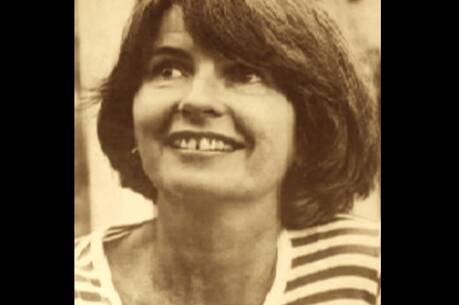Here’s how Truman Capote sets his short story, entitled “One Christmas”:
I had a new suit. It had a card pinned to the lapel with my name and address. That was in case I got lost. You see, I had to make the trip alone. By bus. Well, everybody thought I’d be safe with my tag. Everybody but me. I was scared to death; and angry. Furious at my father, this stranger, who was forcing me to leave home and be away...at Christmastime (36).
It is easy to see how the father in the story did not have time for his son, before this particular Christmas, when he asks that Buddy be put on a bus so that he can spend the holiday with his father in New Orleans.
He seemed to have everything—a car with a rumble seat, not to mention an old pink, pretty little house in the French Quarter with iron-lace balconies and a secret patio garden colored with flowers and cooled by a fountain shaped like a mermaid. He also had a half-dozen, I’d say a full-dozen, lady friends. Like my mother, my father had not remarried; but they both had determined admirers and, willingly or not, eventually walked the path to the altar—in fact, my father walked it six times (38).
Like many a child of divorce, Buddy quickly learns how to capitalize upon his father’s guilt. Angry over a Christmas Eve party that his father had thrown, Buddy does not wait for him on Christmas morning before opening the presents underneath the tree. When his father joins him, he asks Buddy, “You like what Santa Claus brought you?”
I smiled at him. He smiled at me. There was a tender lingering moment, shattered when I said: “Yes. But what are you going to give me, Daddy?” His smile evaporated. His eyes narrowed suspiciously—you could see that he thought I was pulling some kind of stunt. But then he blushed, as though he was ashamed to be thinking what he was thinking. He patted my head, and coughed and said, “Well, I thought I’d wait and let you pick out something you wanted. Is there anything particular you want?I reminded him of the airplane we had seen in the toy store on Canal Street. His face sagged. Oh, yes, he remembered the airplane and how expensive it was. Nevertheless, the next day I was sitting in that airplane dreaming. I was zooming toward heaven while my father wrote out a check for a happy salesman.But I wasn’t free of New Orleans yet. The problem was a large silver flask of moonshine; maybe it was because of my departure, but anyway my father had been swilling it all day, and on the way to the bus station, he scared me by grabbing my wrist and harshly whispering: “I’m not going to let you go. I can’t let you go back to that crazy family in that crazy old house.”...He was squeezing my wrist so hard that it ached. “Sometimes, oh God, I think your mother and I, the both of us, we ought to kill ourselves to have let this happen—“Kiss me. Please. Please. Kiss me. Tell your daddy that you love him.” But I couldn’t speak. I was terrified I was going to miss my bus. And I was worried about my plane, which was strapped to the top of the taxi. “Say it: ‘I love you.’ Say it. Please. Buddy. Say it” (58-59).
Emmanuel Levinas, the great Jewish existentialist philosopher of the 20th century, proposed an interesting take on the relationship of fathers and sons. He began by suggesting that the fundamental fact about each man’s life is its utter thrown-ness. We don’t get to choose our lives. They take turns we never imagined. We struggle against this fate, but we never break its grasp. Then comes the son. It is here, Levinas suggests, that a man breaks free, begins again, invests the life of the son with an amplitude his own never had. Levinas writes:
Possession of the child by the father does not exhaust the meaning of the relationship that is accomplished in paternity, where the father discovers himself not only in the gestures of his son, but in his substance and his unicity. My child is a stranger (Isaiah 49), but a stranger who is not only mine for me, he is me.
For Levinas, by way of the child, we escape our own being thrown into the world. We cannot control our lives, nor can we control that of the child. The child comes as gift, as another who is I and who is not I. The child cannot be grasped, like an object. The child can only be caressed, which is to touch without possessing. For Levinas, our children allow us to transcend ourselves. They come from us. They are of us, at least a part of us. Yet they go forth from us. They go beyond us.
Consider Jesus, the Son of the Eternal Father. The Gospels do not present him as transcending the Father. To the contrary, he is the Father, emptying himself into the world in the person of the Son. Jesus is born into poverty. Indeed, in the eyes of the world, he is dispossessed of the eternal Father himself, being first known as Joseph’s son. Jesus does not appear among us as the fulfillment of the Father’s ambition to break free. He appears as the hallowing out of the Father, as the Father’s very gift of self.
Yet this divine emptying becomes our source of life. Because in the incarnate person of the Son, God chooses to become poor,
The Baptist is a piece of all this. He is the uncouth, unclad herald of the prince who comes among us as pauper. When the Baptist makes inquiries of the Christ, he is told that
God’s impoverishment, which begins in Bethlehem and comes to completion on Calvary, is the emptying of self that gives life to us. To use Levinas’s term, the Father of Jesus does not grasp the world in the person of the son; he caresses it, letting it be its own self in him.
One can understand, even sympathize with the father in Capote’s story. He isn’t perfect. What father is? In his desire to be loved, he tries to seize his son’s love, to make the son an extension of himself.
Yet the story has a happy ending. Back in his own bed, Buddy is told to “Count stars. Think of the quietest thing. Like snow.”
Stars sparkled, snow whirled inside my head; the last thing I remembered was the peaceful voice of the Lord telling me something I must do. And the next day I did it. I went…to the post office and bought a penny postcard. That same postcard exists today. It was found in my father’s safety deposit box when he died last year. Here is what I had written to him. Hello pop hope you are well I am and I am lurning to pedel my plain so fast I will soon be in the sky so keep your eyes open and yes I love you Buddy (52-53).








